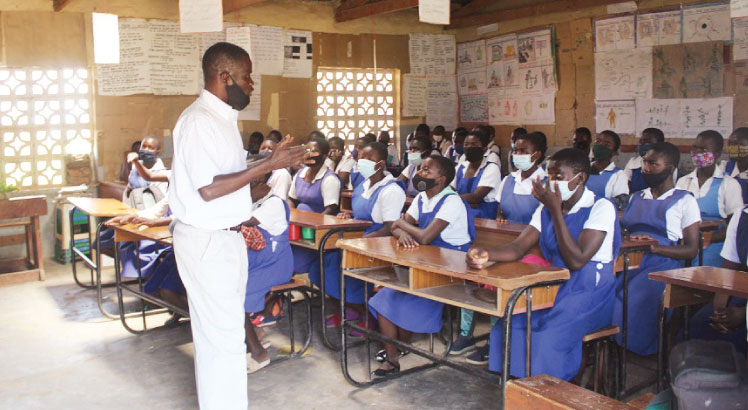Can SolarPedalflo answer water challenges?

An innovative, solar-driven, rural water supply system has managed to improve access to safe water in a number of African countries such as Nigeria, Mali, Senegal, Swaziland, South Africa and Chad and Uganda and Ghana. What is this system and can it work in Malawi? EPHRAIM NYONDO writes.
number of non-governmental organisations (NGOs) are complementing government’s role of ensuring that Malawians have access to safe and potable water.
For instance, under the Australia Africa Community Engagement Scheme (AACES), the Catholic Development Commission (Cadecom), has so far drilled 14 boreholes in Dowa, three in Mzimba and repaired a number in Phalombe.
“Each of the water facility has a water management committee which has been trained in maintenance, service as well as repairing of the facility. We make sure that the water management committee is present throughout the installation process of the borehole; this is mandatory for any contractor Cadecom engages to drill boreholes. When the borehole is drilled, it becomes a community asset as such there is need that they know its operations, we also recommend for a start up tool kit,” said Cadecom’s head Casterns Mulume.
But Charles Razika, a member of Moving Water Industries (MWI) Corporation—a water research organisation that started in Florida, USA, in 1926—declares without an apology that if Malawi is truly interested in meeting its obligations under the Millennium Declaration to “reduce by half the number of her people without access to safe water by 2015”, the only way to do that is to undertake a major project utilising SolarPedalflo.
But what is a SolarPedalflo?
According to Razika, it is an innovative rural water supply system that is capable of delivering a continuous and reliable source of potable water in remote communities without electricity.
“Using a minimum of 350 watts of solar power, the SolarPedalflo is capable of producing 12 000 litres daily of filtered, chlorinated and pressurised water, free of waterborne and airborne diseases and protected in an overhead tank,” he said.
He added that it can even operate in low light conditions in the early morning and early evening hours due to a proprietary linear current booster that provides the necessary current to run the one-half-horsepower motor that drives the pump.
“As a secondary source of power, available at night or on cloudy days, the SolarPedalflo uses the body’s most powerful muscles, the legs, to operate the pedals to pump the water.
“The pedaling is always smooth and uniform due to a unique flywheel that acts as an energy storage device, thereby allowing even young children to pedal with ease,” he said.
SolarPedalflo is being implemented in almost 12 African countries, which include Nigeria, Mali, Senegal, Swaziland, South Africa and Chad and Uganda and Ghana.
Razika added that in 2003-2004, MWI entered into a Public Private Partnership with USaid- Mali to provide a sustainable method of increasing access to safe water using the SolarPedalflo technology.
“The solar unit replaced five hand pumps that were broken down 50 percent of the time. Shortly after the installation of this unit, there was an outbreak of cholera in the region. The village where the SolarPedalflo was installed was the only one to escape the ravages of the disease because it had safe water. At the end of the first year, the chief of the village reported that no child had suffered diarrhoea,” he said.
In all the countries it has been operating, the system, according to Razika, has freed women and children from the arduous daily hurdle of trekking long distances to fetch contaminated water, thereby allowing women to become more productive and permitting children time to go to school.
He added that clean water has resulted in healthier babies as well as significantly reduced infant mortality rates and it has also been demonstrated that when used in combination with simple hygienic practices, the SolarPedalflo can dramatically reduce diarrhoea and cholera incidents.
It is worth noting that in the countries SolarPedalflo is operating, its roll out is dependent on the will of the government to provide potable water to its people.
According to studies done by international agencies, each borehole for a hand pump can cost between K2.4 million (US$6,191) and K2.7 million.
To drill four boreholes and install hand pumps on them would cost between K10.9 million (US$30,959) and K12.3 million (US$37,151).
For significantly less money, studies show a SolarPedalflo can be purchased and installed complete with borehole, overhead tank with stand, and multiple distribution points.
Razika, hence, appeals to politicians to view the project as a national priority which transcend party politics and for successive governments to be able to carry on with such projects, as they impact on the health of the nation.
“As long as access to safe water remains abysmally low, children will continue to die needlessly and those who survive will waste time fetching water or constantly being sick, instead of receiving an education. Women will continue to lead marginal and unproductive lives as women and children bear the burden of walking up to three kilometres per day to and from the water source.
“In this scenario, creating sustainable economic growth and achieving real poverty reduction and meeting the MDG’S on water, health and education will continue to be a myth. For such projects to succeed, the various communities must be involved from their inception. There must be a sense of ownership which can only be achieved if each household in the community can be made to pay a token fee which then can be used to carry out minor repairs and purchase of water treatment chemicals.





